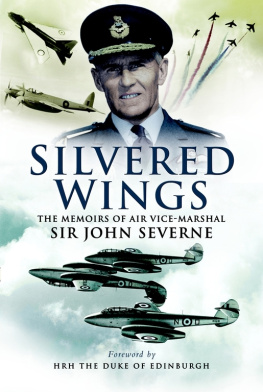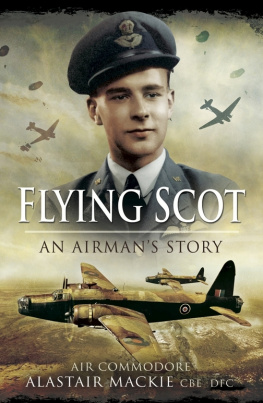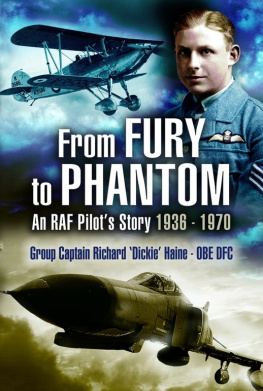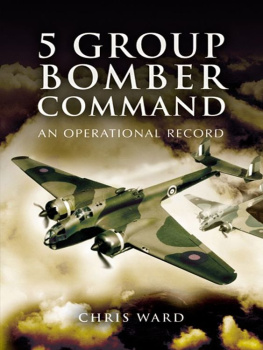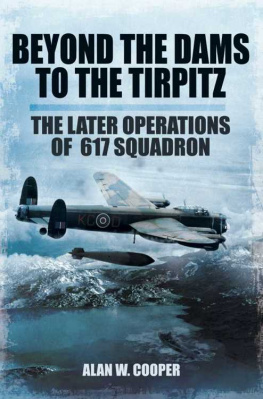Camel Combat Ace
Dedicated to all British and Commonwealth airmen who flew and fought over the Western Front in World War One.
Camel Combat Ace
The Great War Flying Career of Edwin Swale CBE OBE DFC *
Barry M. Marsden
First published in Great Britain in 2017 by
Pen & Sword Aviation
an imprint of
Pen & Sword Books Ltd
47 Church Street
Barnsley
South Yorkshire
S70 2AS
Copyright Barry M Marsden 2017
ISBN 978 1 47386 684 3
eISBN 978 1 47386 686 7
Mobi ISBN 978 1 47386 685 0
The right of Barry M Marsden to be identified as the Author of this Work has been asserted by him in accordance with the Copyright, Designs and Patents Act 1988.
A CIP catalogue record for this book is available from the British Library
All rights reserved. No part of this book may be reproduced or transmitted in any form or by any means, electronic or mechanical including photocopying, recording or by any information storage and retrieval system, without permission from the Publisher in writing.
Pen & Sword Books Ltd incorporates the imprints of Pen & Sword Archaeology, Atlas, Aviation, Battleground, Discovery, Family History, History, Maritime, Military, Naval, Politics, Railways, Select, Transport, True Crime, and Fiction, Frontline Books, Leo Cooper, Praetorian Press, Seaforth Publishing and Wharncliffe.
For a complete list of Pen & Sword titles please contact
PEN & SWORD BOOKS LIMITED
47 Church Street, Barnsley, South Yorkshire, S70 2AS, England
E-mail:
Website: www.pen-and-sword.co.uk
Acknowledgements
I n writing this book I must extend my grateful thanks to the late Margaret Howard, Edwins daughter, her son Richard Rudin and her niece Helen Maley, whose interest and invaluable contributions have made this work possible. Sincere thanks also to Norman Franks for his invaluable help with planes and personnel.
Introduction
T he Swales of Chesterfield, Derbyshire, were uniquely airminded. Edwin Swale was a World War One fighter ace with seventeen victories, and his immediate family all took to the skies either in gliders or powered aeroplanes, or both. No fewer than three of the Chesterfield Swales were decorated with the Distinguished Flying Cross (plus a US DFC for good measure), and two of them gave their lives in successive Great Wars. Luckily Edwins 1918 diary and logbook survive, as do those of his son Duncan who flew night intruder sorties over enemy territory in 19441945. Edwin also had a proud record as a councillor, alderman and mayor in his home town, and also served in the World War Two RAF, overseeing Ultra code-breaking intelligence with the 2nd Tactical Air Force.
I hope this narrative will do justice to the familys exemplary service in war and peace, and will stand as a tribute to the members who so graced my native township.
Barry M. Marsden
Eldwick, West Yorkshire
Chapter 1
Boyhood and Biplanes
E dwin Swale was a Victorian, born in Chesterfield in the June of the last year of the nineteenth century. His father, Arthur Whiteley Swale, listed as a tailor-cutter in the 1901 census, came from Keighley in the Airedale-Wharfedale area of Yorkshire. In 1870, during a time of local depression in the woollen trade, Edwins grandfather Seth brought his family to the north Derbyshire town where Arthur met and married a local girl, Emmeline Furness. Seth had opened a shop on Sheffield Road supplying clothes to people in the outlying mining villages of east Derbyshire. His three boys took the goods and samples by train, and the buyers paid for them in weekly instalments.
Arthur was somewhat of an entrepreneur who, in time, decided he would rather work for himself than for his parents and he was granted a mortgage from the Yorkshire Penny Bank to buy a property on Vicar Lane, near the town centre. He also yearned for respectability according to a family member, perhaps concerned that his father, Seth, was an unusual personality for the time. As a committed atheist and socialist, described later by Edwin as a Marxist Atheist, he was perhaps not the ideal model for someone who wished to abide by the social mores of the day. The shop, selling clothes on the instalment scheme, and situated on a busy thoroughfare, prospered and quickly expanded by taking over the next-door premises.
An advertisement in An Illustrated Guide to Chesterfield , published in 1911, left readers in no doubt that the undertaking was on its way up. It read:
Every article of mens, youths or boys outfit, from a necktie or a shirt to a suit of ready-made or measured clothing, is to be obtained of up-to-date quality at exceedingly moderate charges at this well-stocked establishment, where Mr. Arthur Swale is doing a large and increasing business in catering for these requirements of the local residents. The premises, situated in Vicar Lane, give every outward indication of the flourishing trade transacted, having the appearance of a first-class tailoring establishment, an aspect well borne out by the large and comprehensive stock of goods submitted for inspection in the window and the spacious interior. The principal features of the business are the well-cut and perfect-fitting garments supplied for every class of wear, the best material and excellent finish being assured, whether ready-made or bespoke.
Arthurs family, which included Edwin and his elder brother, Arthur Duncan, two years older than his sibling, moved to Tennyson Avenue, a smart, new, tree-lined thoroughfare full of local business and professional people with a certain community of interest. It is a singular fact when considering Edwins career in the fledgling RAF that just across the street from the Swales lived the Bond family, whose eldest son, William Arthur, who trained as a newspaper reporter, volunteered for the army in 1914 and later became a Royal Flying Corps ace piloting Nieuport 17 scouts with 40 Squadron, winning the Military Cross and bar before his death in 1917. His wife, Aimee, told his story in her best-seller, An Airmans Wife , published in 1918. Bills younger brother, Ernest, won the Military Medal as a gunner with the Royal Field Artillery, and was later awarded a commission with the South Staffords.
The Swales remained in Tennyson Avenue until 1913 when Arthur, by now somewhat wealthy, purchased Hady House, a fine Victorian property in rural surroundings on Hady Hill to the east of Chesterfield, with gardens on several levels, two coach houses and other extensive outbuildings. Edwin himself recorded that he enjoyed a happy childhood, strict according to the tenets of the age, but in a loving environment. His parents became members of the local Congregational Church and both children went to Sunday school and morning service as well. As they grew older they went to evening chapel, joined the Chapel Scout Troop and, in due course, Edwin became a committed Christian. The boys were educated at Chesterfield Grammar School, then a fee-paying establishment, and Edwin was certain his father made many sacrifices to give them a better start in life than he himself had enjoyed. He remembered that the family always took a fortnights holiday each year, visiting such places as North Wales and the Isle of Man, and that when they entered their teens they were given bicycles, which enabled them to range locally across Derbyshire. The family also made occasional forays to stay with their relatives in West Yorkshire.


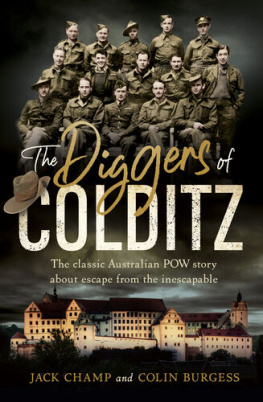

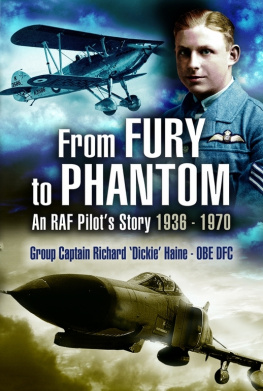
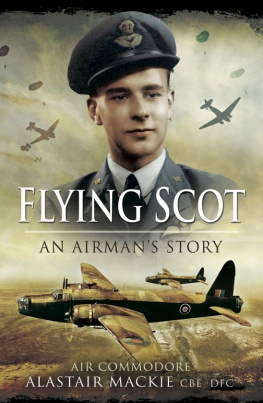
![Bar Wing Commander Guy P. Gibson VC DSO - Enemy Coast Ahead [Illustrated Edition]](/uploads/posts/book/180257/thumbs/bar-wing-commander-guy-p-gibson-vc-dso-enemy.jpg)
